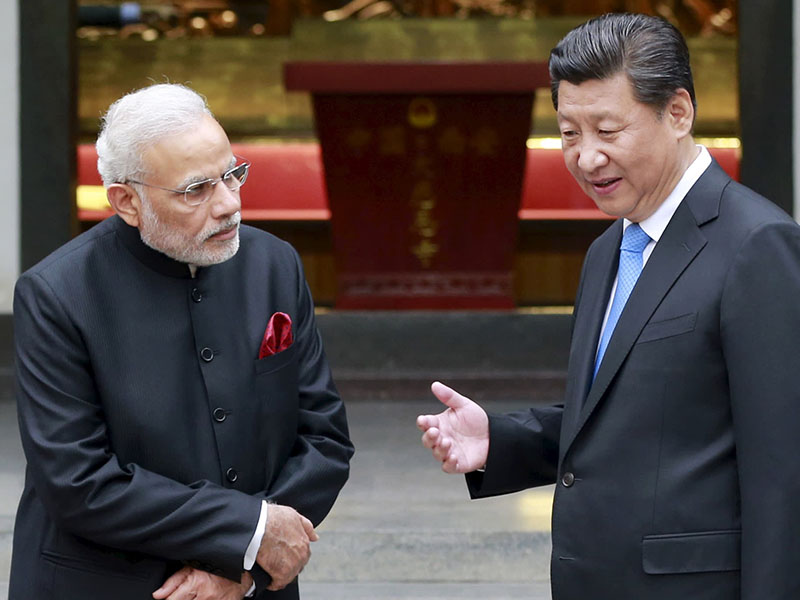By MP Joseph
Something that has never happened before in Indian history happened last month. In one short week, three of our neighbours, China, Pakistan and Nepal, martyred our soldiers or killed our citizens.
It is exceedingly painful to hear of our soldiers being martyred and our people killed. Painful also has been the global response to these atrocities.
International relations are built on commonality of interests. Decades ago while preparing for writing the paper on International Relations in the Civil Services examinations, I read as my primer on the subject Hans Morgenthau’s erudite book on international relations titled, ‘Politics Among Nations’. Morgenthau was a classical realist and his book, a seminal work on international relations and diplomacy, is a realistic elucidation of how international relations work in practice.
Morgenthau’s postulate was that ‘politics is governed by distinct immutable laws of nature and that states could deduce rational and objectively correct actions from an understanding of these laws’. He argued that in international politics power was ‘the dominant goal’. He was a Chanakyan in his exposition of the true nature of politics amongst nations and argued that we cannot equate ‘the moral aspirations of a state with the objective moral laws that govern the universe’. Like Kautilya he held that nations keep, demonstrate and increase power through their actions.
In recent times India seems to have forgotten these basics of international politics. We have forgotten the fundamental tenet of international relations that countries only have permanent interests, not permanent friends nor permanent enemies.
Travelling across the world and embracing world leaders is great as photo-ops. But countries do not fall for charm, nor are taken in by the charisma of visiting leaders. Charm and charisma work in elections. They win votes, but do not count for anything in interactions between nations. They could often be counter-intuitive.
Modi is said to have visited China nine times, officially and unofficially both as Chief Minister of Gujarat and later as Prime Minister. That obviously made no difference to Xi Jinping. In the framework of power, Morgenthau would argue, that such charm offensives betray a deep-rooted weakness, a desire and need to please the big brother.
But what is more worrying is that in this clash with China, the support India got from across the world was highly muted. No country really made any strong statements in India’s favour. It took a whole week of 7 days for Mike Pompeo the US Secretary of State to make a statement.
When Boris Johnson finally spoke about India’s standoff with China a few days ago, he was even more discreet vis a vis China, blatantly putting India and China on the same footing.
Worse, the silence of the African, Arab and Islamic nations has been deafening. Undoubtedly, the Citizenship Amendment Act and the resentment and isolation it created amongst Muslims in India has not been helpful with these countries. The recurring reports of the lynching of Muslims across North India and the government’s lukewarm response – or the lack of it – on such public murders, has not helped either. Last week saw international TV Channels including the BBC come out with unusually negative reporting about India. Even in the context of the reported torture and death of two traders in police custody in Thuthukudi, the BBC report focussed on how the police behave viciously and brutally with Muslims.
India is beginning to be seen more and more as an Islamophobic country, with the government winking at it. The silence of the Arab and Muslim countries at the Chinese incursion is otherwise inexplicable. The Islamic world has no great love for China, seeing how China treats its Muslim minorities. So the silence of this bloc is disquieting. Even Israel whom India has been cultivating has chosen to be silent.
But the worst came from our friendly neighbourhood Nepal. After having killed an Indian citizen firing across the border, Nepal went on to redraw its map to take over swathes of our country. Et tu Nepal?
We seem to have been isolated by the world community. Not a very glorious isolation either.
Disclaimer: The opinions expressed within this article are the personal opinions of the author. AlignIndia does not take any responsibility for the content of the article.
Mr M P Joseph is a former Indian and UN Civil Servant. He belongs to the 1978 batch of the IAS and has worked with the UN & ILO in India and abroad for 20 years. He can be contacted on mpjoseph@hotmail.co.uk


